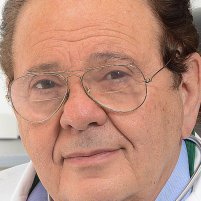End-Stage Renal Disease


Sometimes called end-stage kidney disease or kidney failure, End-Stage Renal Disease (ESRD) occurs when the kidneys no longer function properly and cannot be restored to normal function. ESRD is the last stage of chronic kidney disease, a medical condition that progresses over time.
Several factors can contribute to chronic kidney disease and ESRD, including diabetes and high blood pressure. ESRD often takes several years to develop, and proactively managing chronic kidney disease can help delay the development of ESRD.
The most common symptoms of end-stage renal disease include: high blood pressure, fatigue, widespread itching, headache, unintentional weight loss, loss of appetite, bone pain or aches, changes in the skin and nails, problems focusing (brain “fog”), numbness or tingling in the hands and feet, swelling in the feet or ankles, excessive thirst, muscle cramps or twitches, and blood in the stools. People with chronic kidney disease will need to be frequently monitored to track the progress of their disease. Blood tests and urinalysis will need to be performed on a regular basis, and when kidney damage is suspected, a small tissue sample or biopsy may be taken from the kidneys for further evaluation under a microscope.
People with end-stage renal disease will need to have dialysis to perform the tasks usually performed by healthy kidneys. Dialysis uses machines to filter wastes from the bloodstream so your organs stay as healthy as possible and blood pressure can be better controlled. Most people who undergo dialysis have about 10 percent to 15 percent of their normal kidney function remaining. Different methods of dialysis are available depending on your specific needs. Eventually, people with ESRD will require a kidney transplant to replace one ailing kidney with a healthy donor kidney. Transplants are not always a suitable option, and treatment decisions are made on a case-by-case basis. During dialysis, you'll also need to follow a special diet to maintain optimal nutrition and decrease the stress on your kidneys, and you'll probably need to take medications to control high blood pressure.
Feel free to email us regarding any scheduling or general questions!